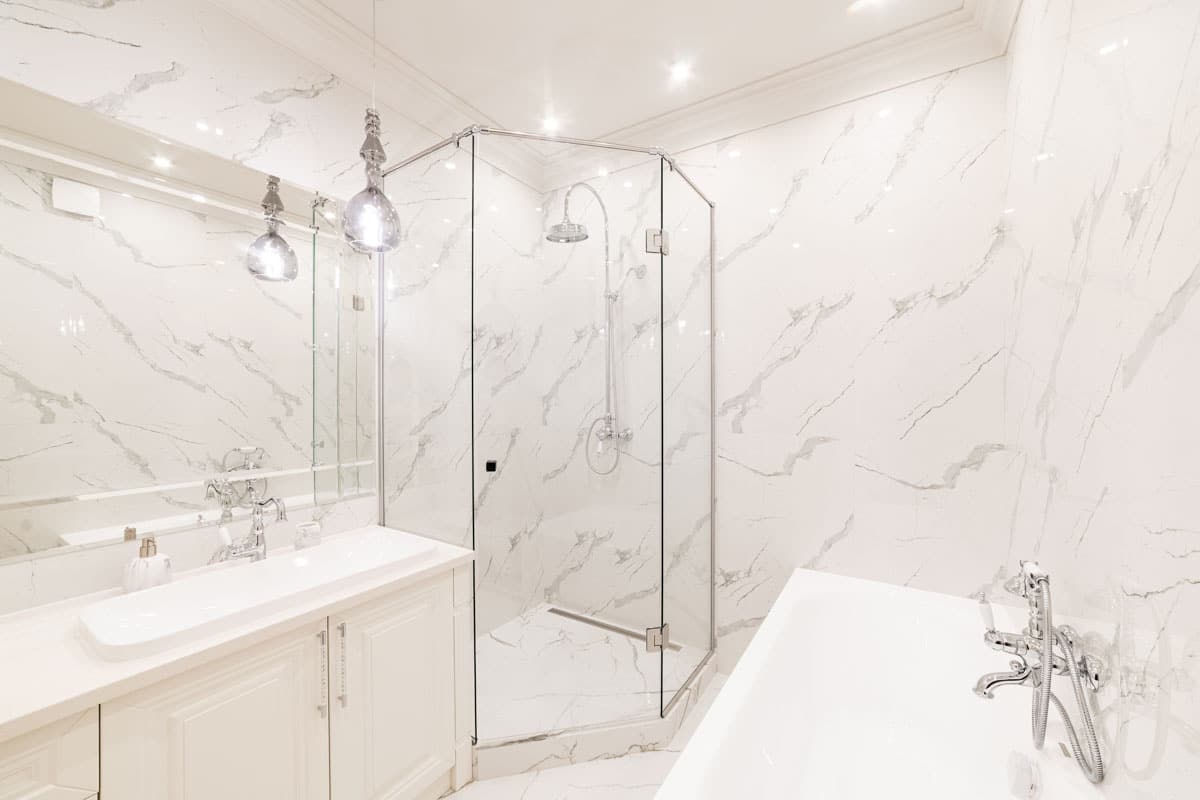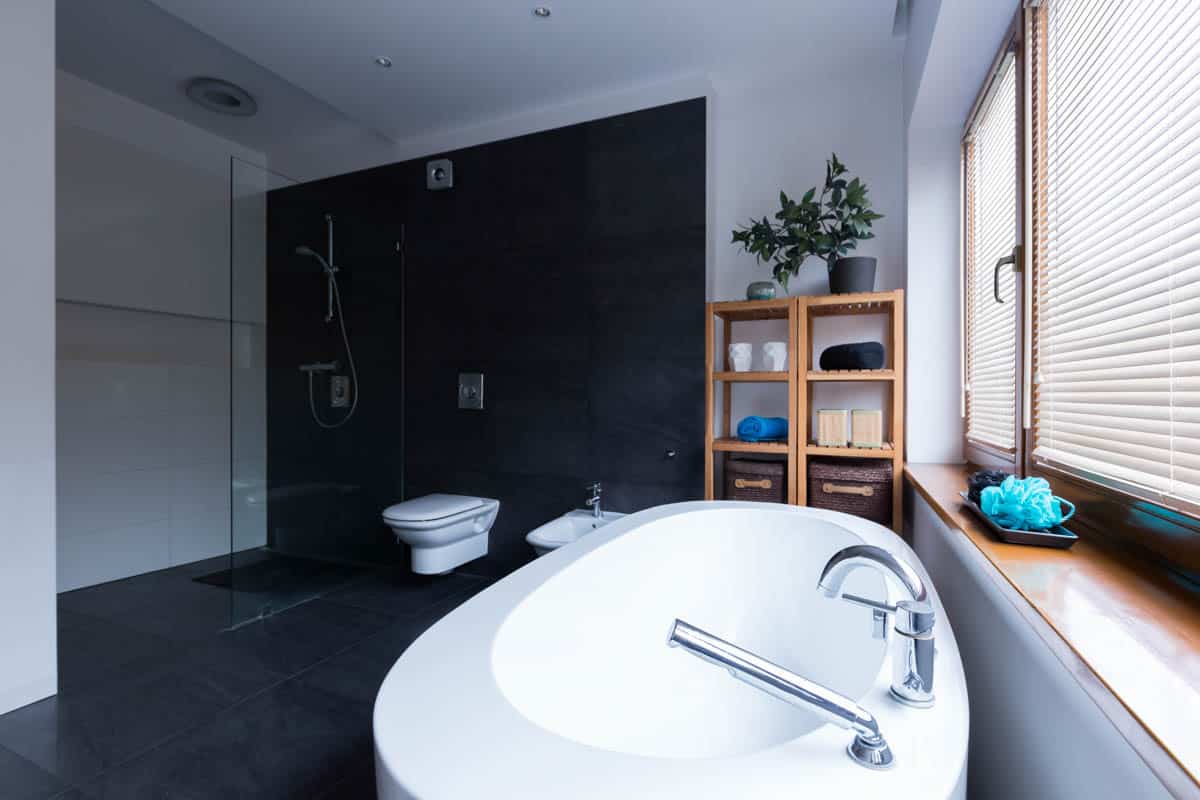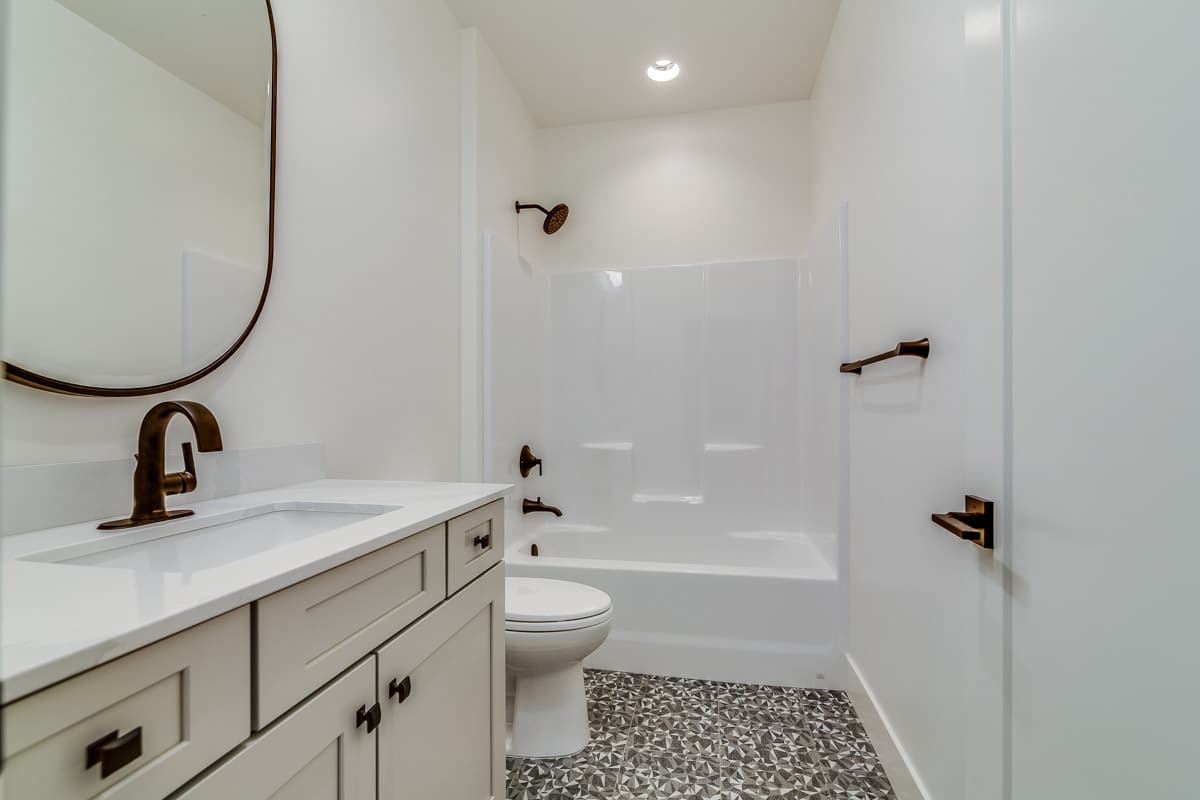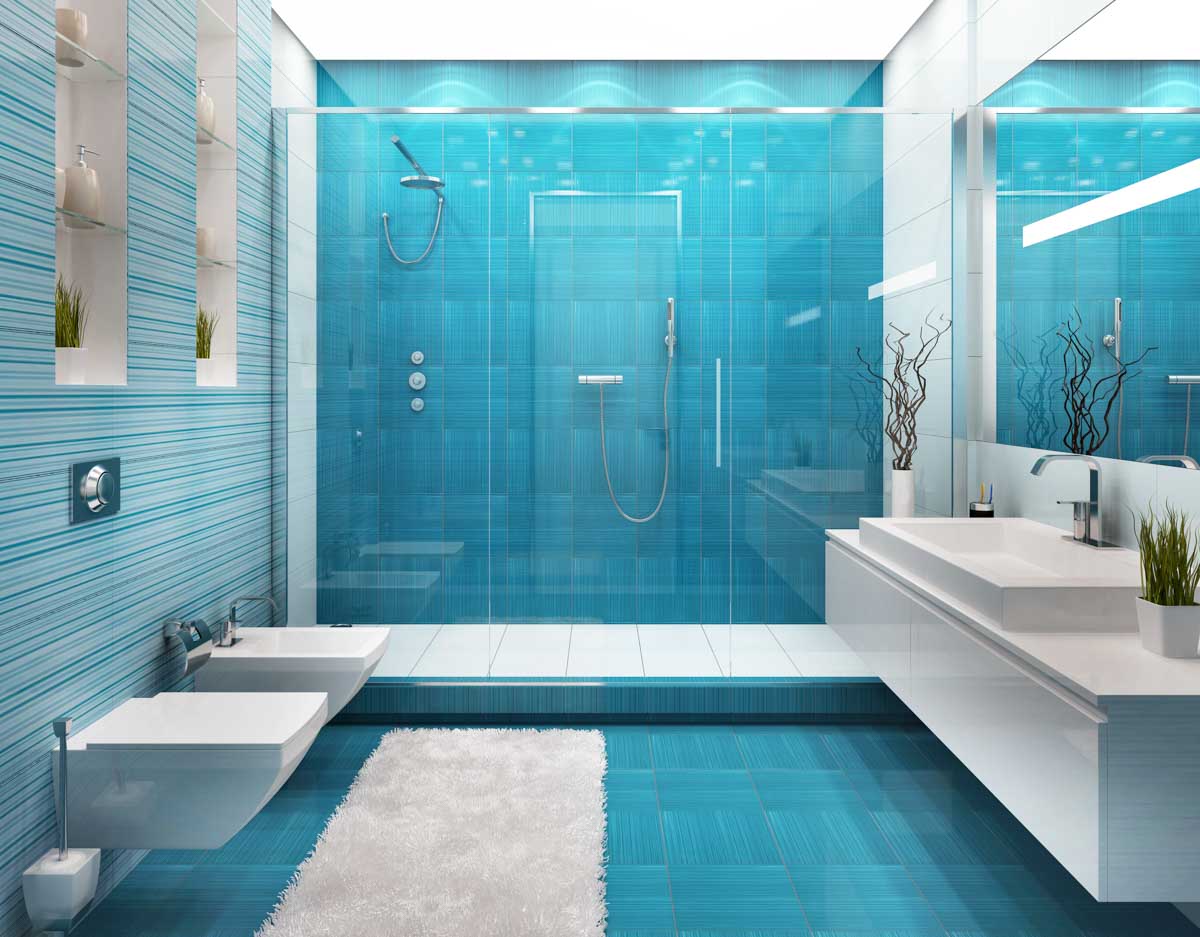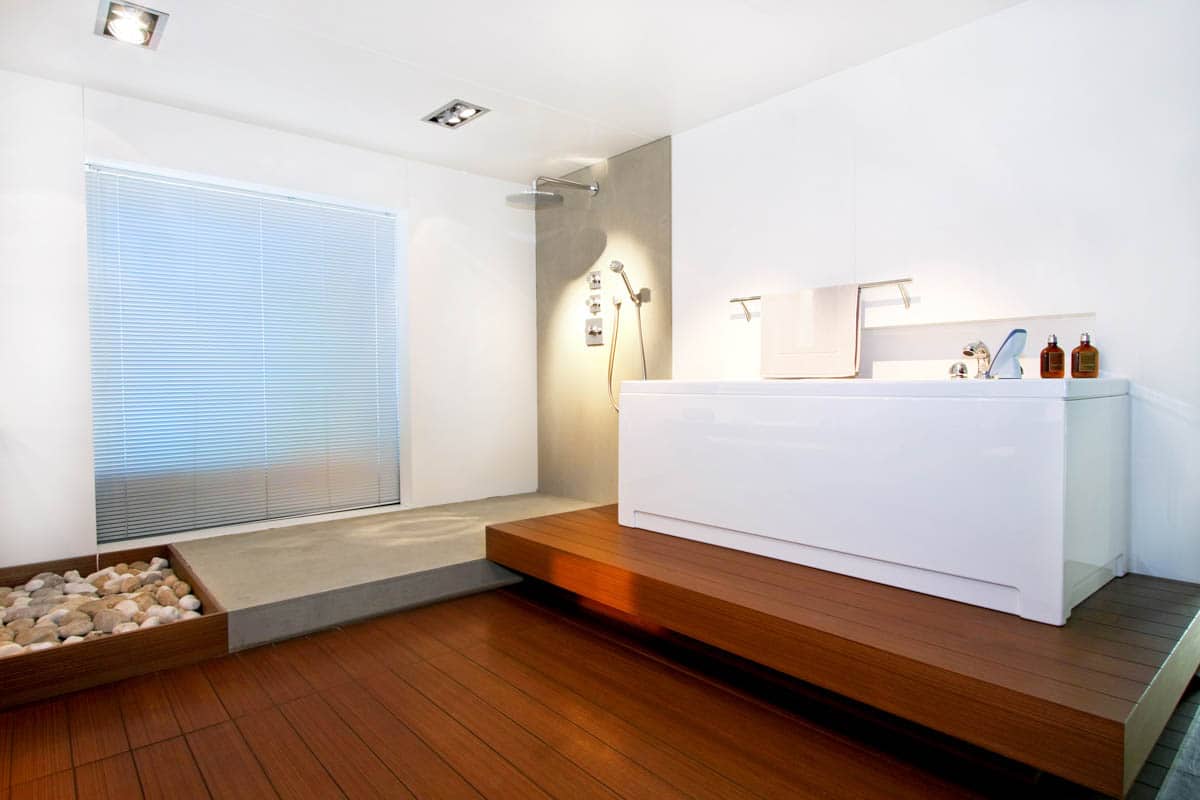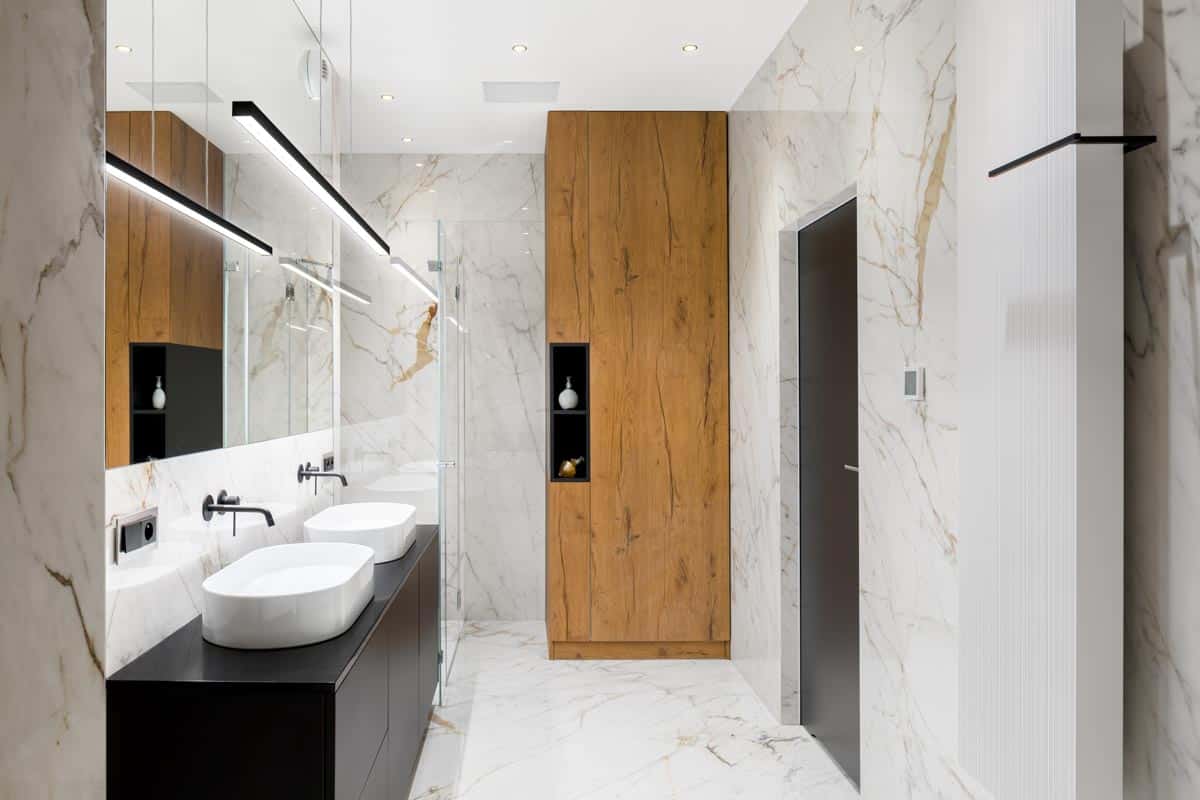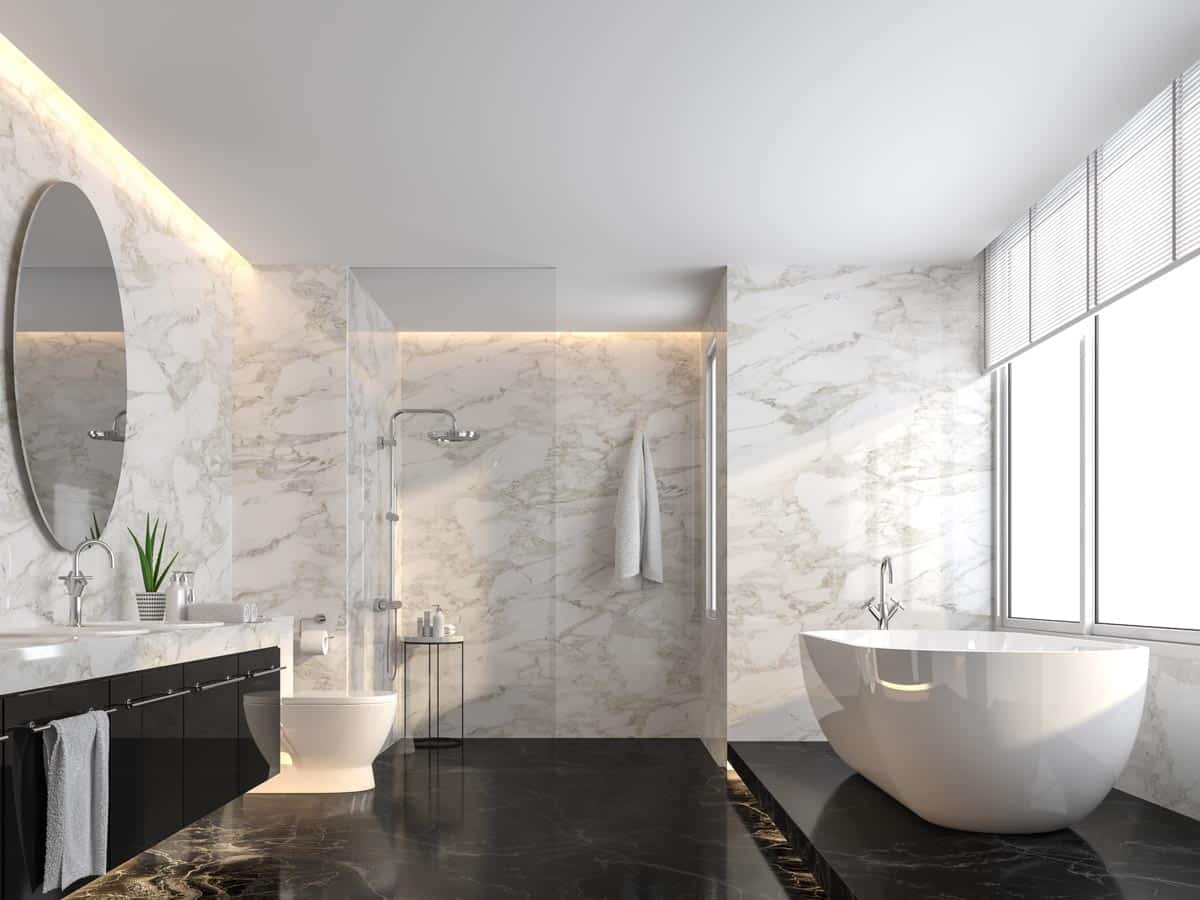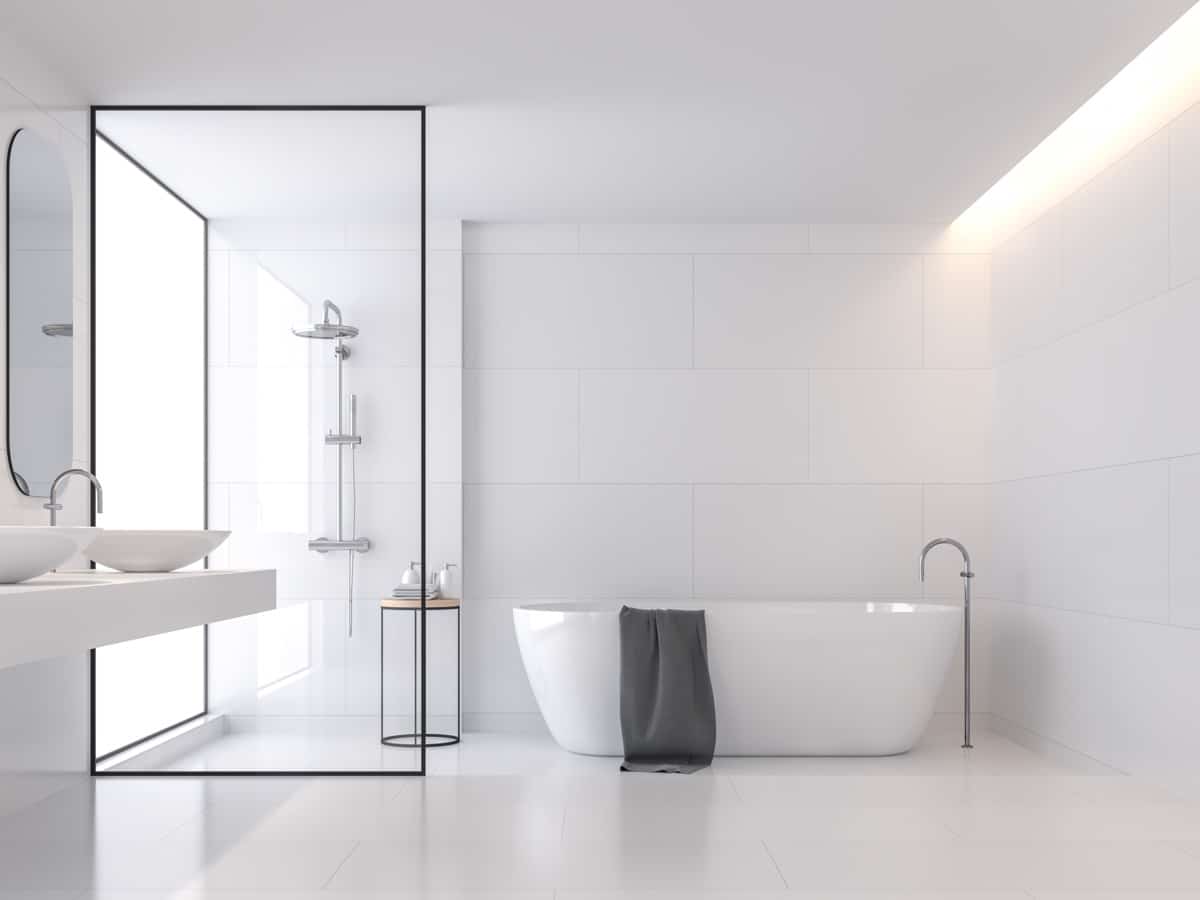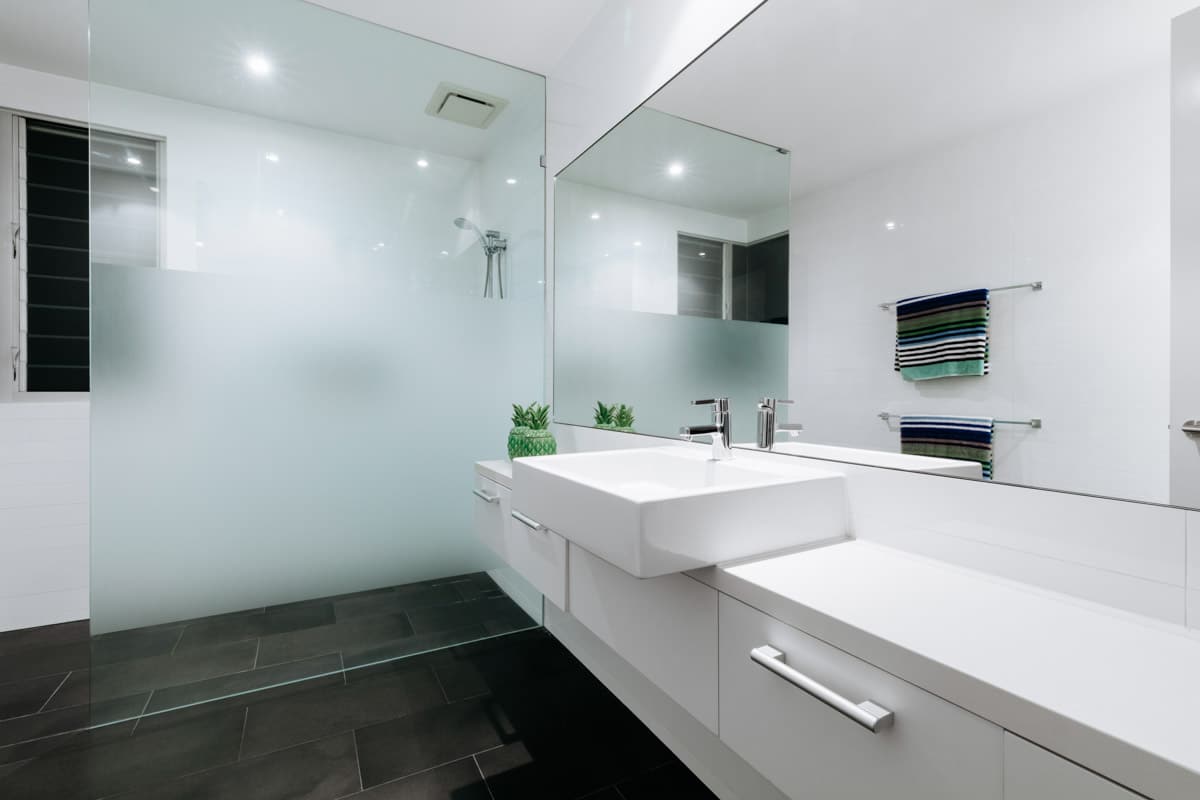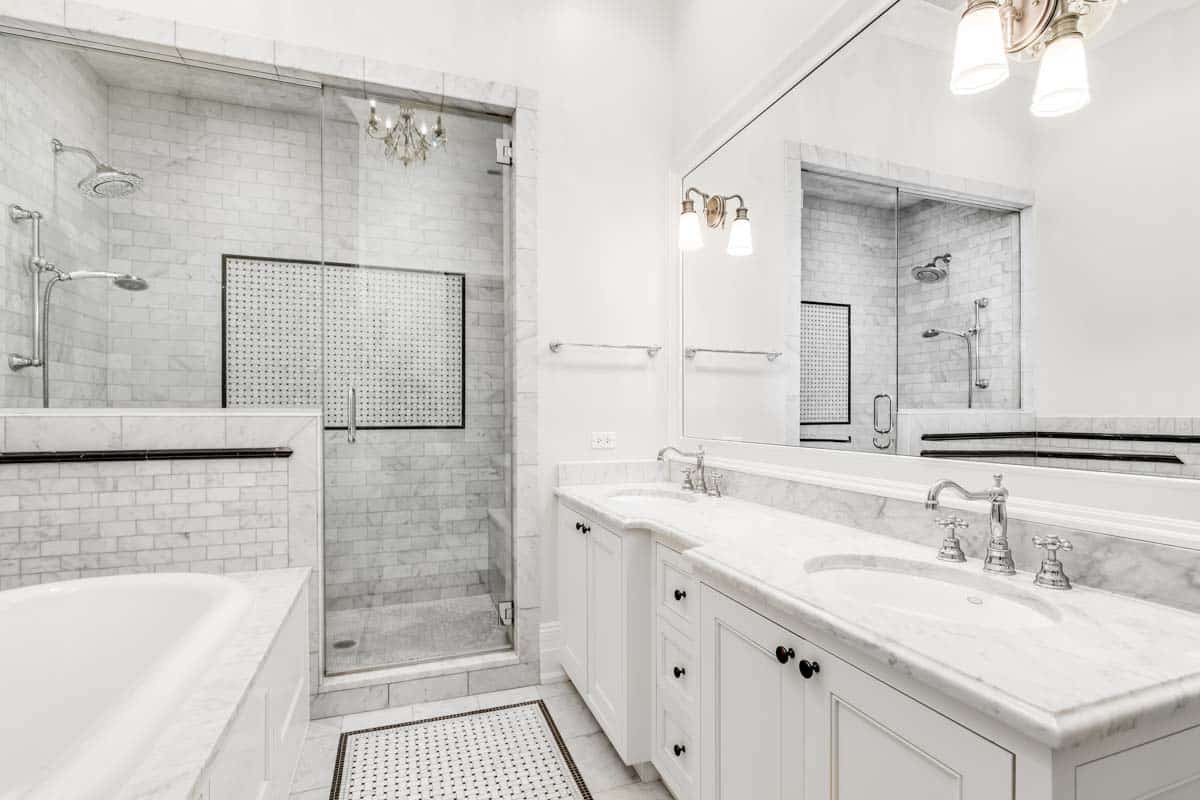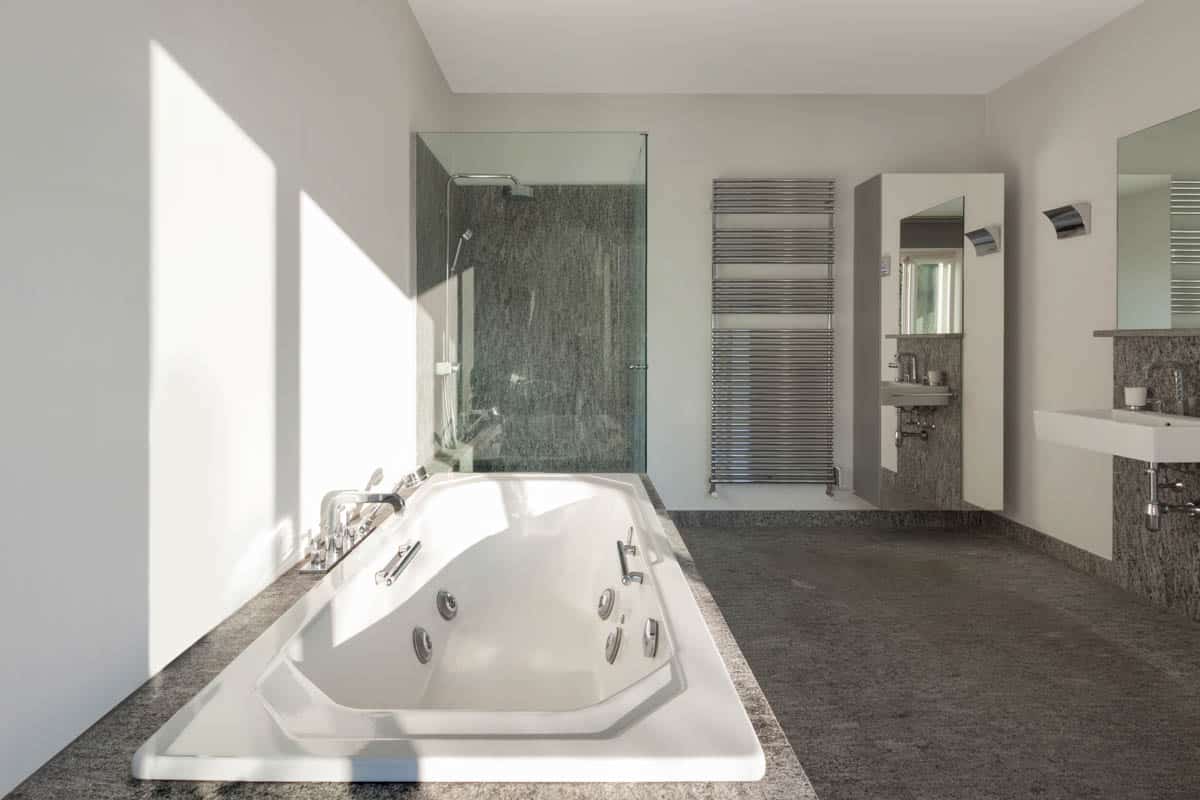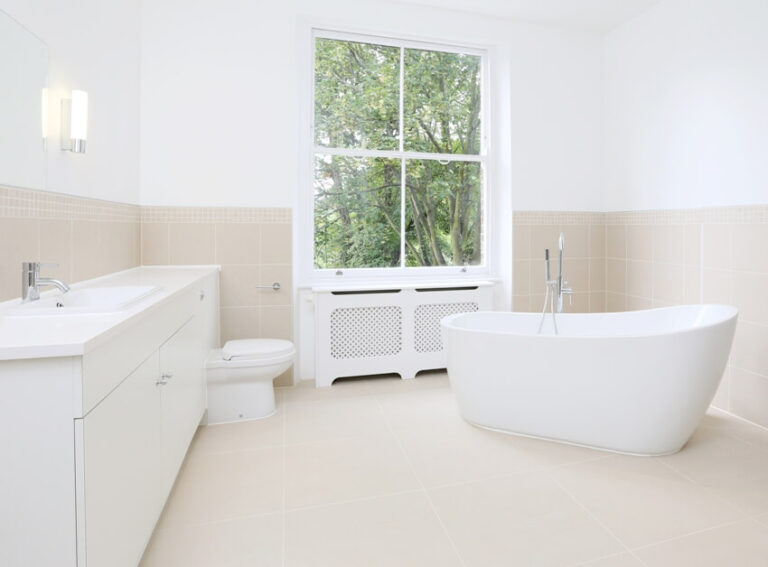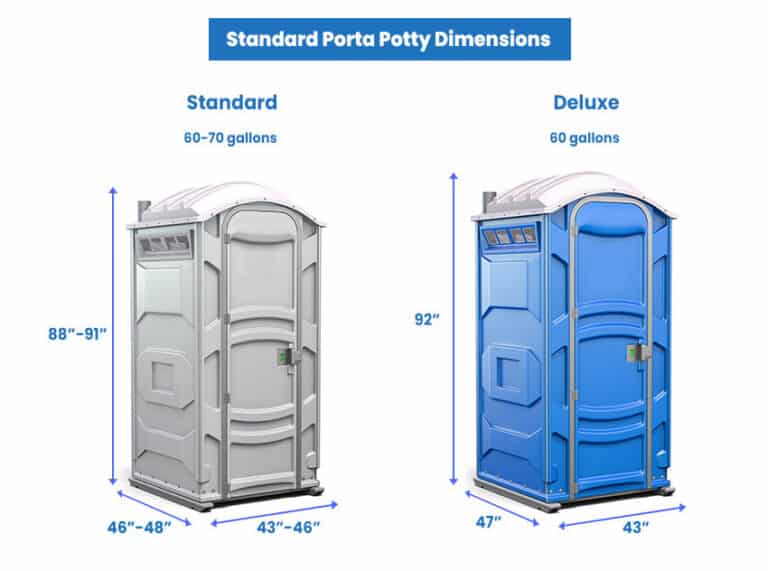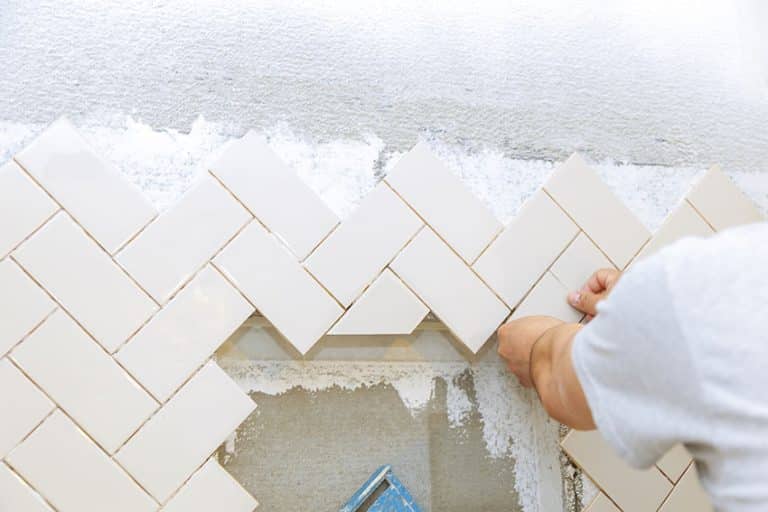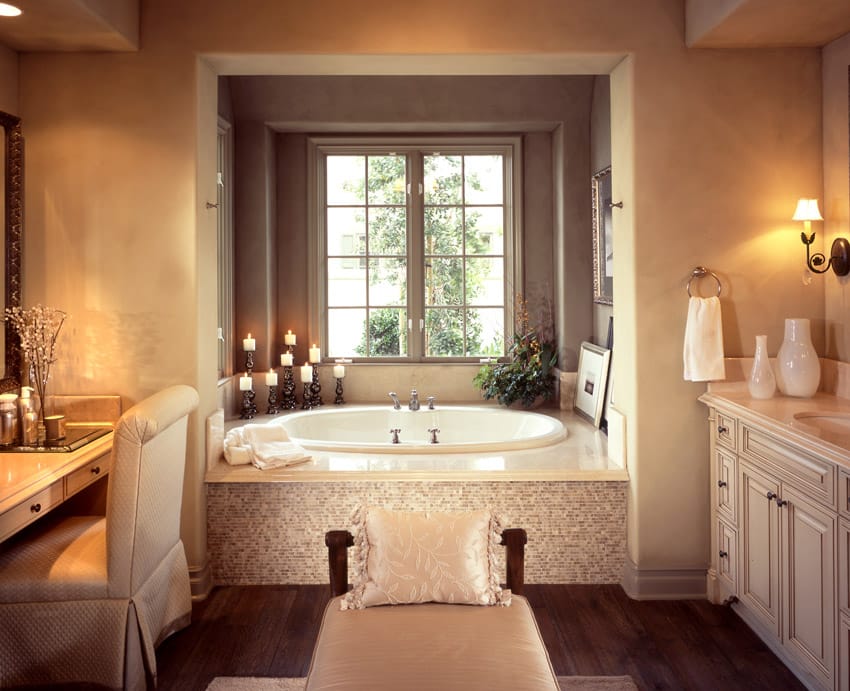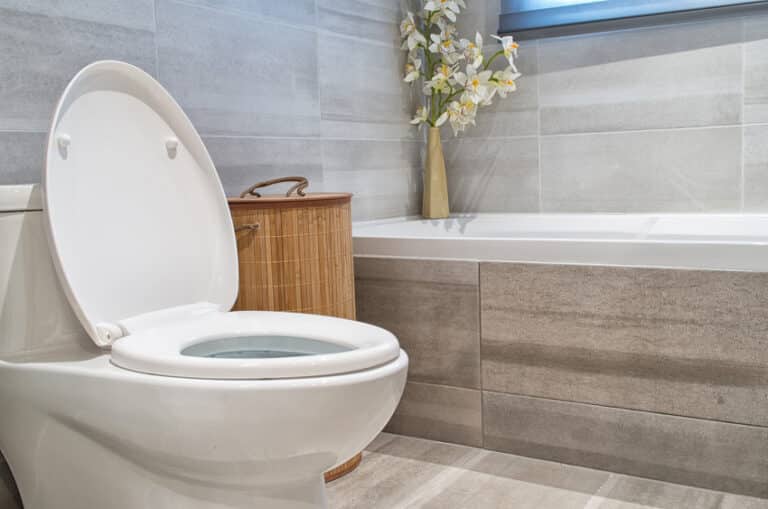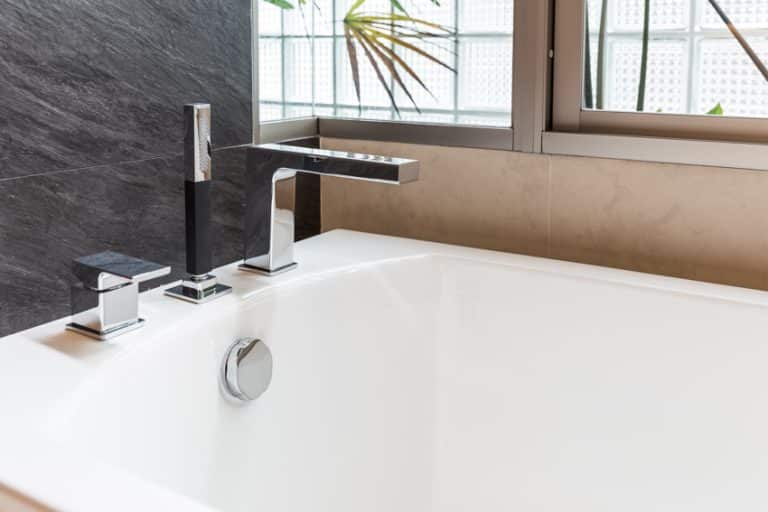Groutless Shower Walls (12 Beautiful Bathroom Options)
Discover groutless shower walls including design options that use wall panels without grout, PVC sheets, acrylic, fiberglass, and solid surface.
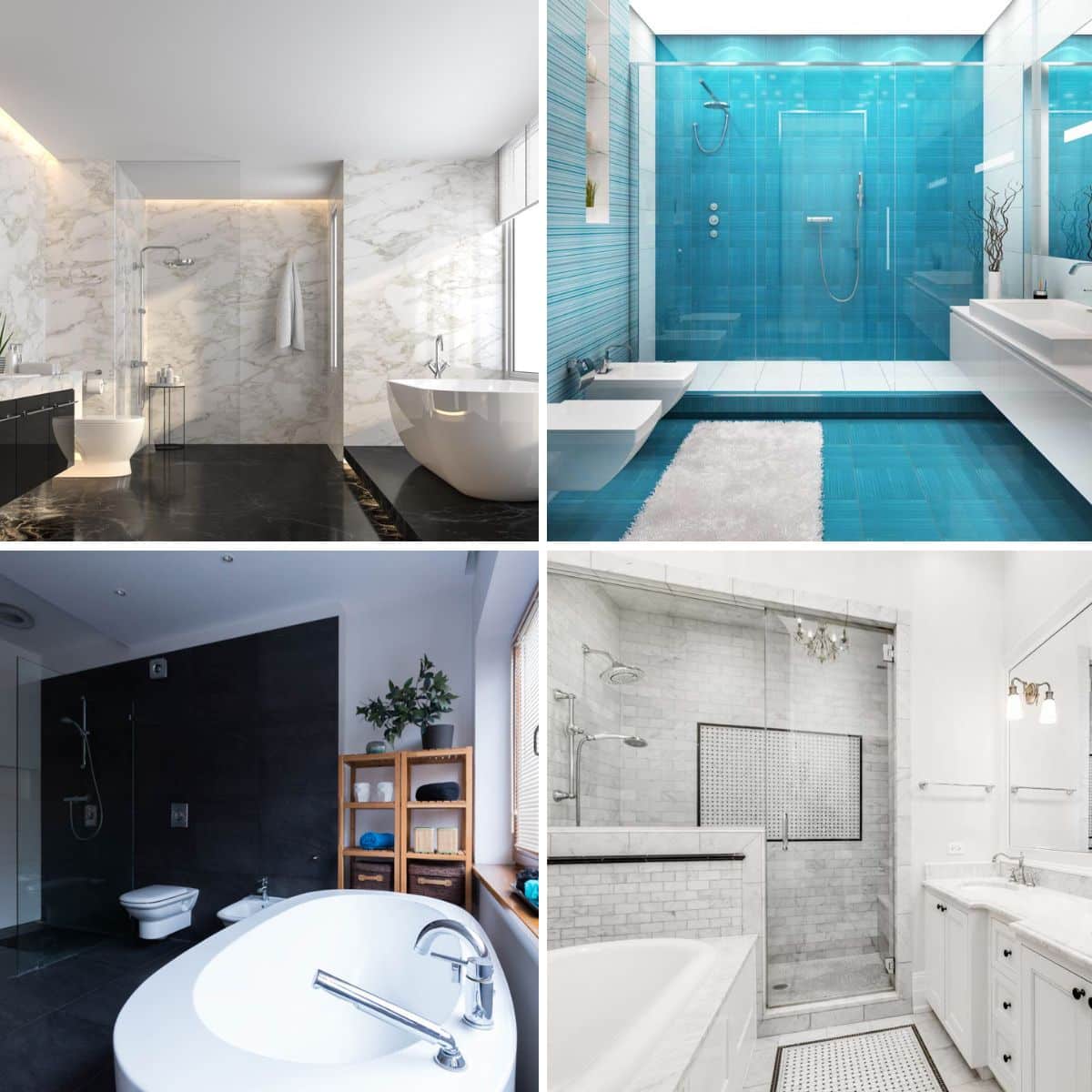
With the range of shower wall options today, finding the suitable material that meets your needs and budget has become more accessible and customizable than ever before. One of the most popular shower wall designs today is groundless wall panels. The sleek and clean surface is perfect for creating an updated look without high maintenance.
Areas with constant humidity, such as the bathroom, can encourage mold growth which can cause health problems. According to NIH or the National Institute of Environmental Health Sciences, spores from molds such as penicillium and Alternaria can cause chronic cough, sore throat, blurred vision, and sinus congestion. A groutless shower is also easier to install, as wall tiles require a straight layout.
Shower Options for a Groutless Design
Here we share the different options for bathroom shower groutless designs.
Groutless Wall Panels
Groutless wall panels are a general term for wall finishes larger than tiles. The typical wall sizes include 36 inches x 72 inches, 48 x 96 inches, and 60 inches x 96 inches. These sizes are made to accommodate the general shower enclosure dimensions.
Groutless wall panels usually have a tongue and groove connection, eliminating the need for the spaces between the panels to fill in the grout.
• 36 inches x 72 inches (3 feet x 6 feet)
• 48 inches x 96 inches (4 feet x 8 feet)
• 60 inches x 96 inches (5 feet x 8 feet)
The larger size also means fewer joints. The fewer the joints, the less potential for water or moisture to seep through the underlayment. The continuous surface also makes it less busy in the eyes, leaving a sleek and clean appearance which are hallmarks of the contemporary design.
Most groutless wall panels have a hollow core, and the air gap contributes to some insulation properties of the material. This also makes the groutless shower wall DIY-friendly.
PVC Sheets
Rigid polyvinyl chloride, or PVC, is a thermoplastic polymer known for its affordability and durability. PVC material is favored as a roofing, piping, windows, and bathroom flooring material, making it a sensible option for shower areas where water and moisture are a concern.
PVC sheets are virtually waterproof as they contain no material that can get wet. The wall panel also has a tongue and groove connection, and it can be placed either a corner profile or miter on the corners, making it watertight.
This leaves a seamless connection for the groutless shower wall. Silicone sealant is applied over the tongue to ensure no water can pass through. In case of a faulty application of the sealant, a space is provided between the two adjacent panels where water is trapped and prevents further passing through the panel.
Most PVC sheets for shower installation come with a fixing kit, including sealants that match the panel manufacturer’s specifications – 1 meter x 1.5 meters ( 3.28 feet x 4.92 feet).
Acrylic & Fiberglass Panels
Acrylic and fiberglass panels were several of the first bathroom wall surfaces that integrated the groutless shower walls. Both acrylic and fiberglass are easy to handle and install because of their lesser overall weight. This makes acrylic and fiberglass a practical option when the additional dead load in a building is a concern, especially when installed on the upper floors.
Another similarity between acrylic and fiberglass panels is that both are basically made from the same material, but there’s a difference in how each is manufactured.
Acrylic shower panels are made under specific temperatures with processes such as heating, vacuuming, stretching, and pulling over a plastic acrylic sheet in a large aluminum mold. Then, further strengthened with fiberglass resin.
Meanwhile, fiberglass is sprayed with a gel coat on an open mold and reinforced with fiberglass resin. The sprayed gel coat is the reason why fiberglass shower walls are easier to patch up and repair.
Of the two types of groutless shower walls, acrylic is generally more durable and expensive compared to fiberglass, as acrylic panels tend to be thicker.
Standard Heights:
• 72 inches (6 feet)
• 80 inches (6 feet 8 inches)
• 96 inches (8 feet)
Standard Widths:
• 32 inches
• 36 inches
• 48 inches
• 60 inches
Solid Surface Panels
The engineered composite solid surface panel is another type of groutless shower wall that can mimic the look of natural stone and other types of panel surfaces. Since it is a manufactured material, the solid surface panels have consistent coloring.
This makes the engineered wall panels a practical alternative to natural stone such as marble, granite, or travertine since it has an impervious surface. This means no water, soap, and other substances that can cause bacteria growth can go through the surface.
A buffing system can quickly restore the sleek surface when repairing solid surface panels for accumulated scratches and blemishes.
Examples of solid surface panels include Staron. Continually improved by Samsung Chemicals, Staron is a relatively new groutless shower wall made from bauxite, natural minerals with acrylic resin binders. The typical size of Staron panels is 3.68 x .76 with a thickness of 12mm, meaning fewer grout lines. Other popular brand names under solid surface panels are Tristone, Meganite, and Krion.
Natural Stone Slabs
While nothing beats the look of natural stone slabs, natural stone slabs also have another advantage over synthetic materials when it comes to architectural finishes. Most organic materials have excellent thermal mass properties.
This means that heat energy is absorbed, stored, and released slowly, unlike engineered shower walls that can make a shower area uncomfortable due to trapped heat.
The most popular types of natural stone used are marble, granite, slate, and travertine shower. Rectified natural stone tiles and slabs are popular options for shower walls when you’re aiming for a groutless shower wall.
With proper installation, water is prevented from seeping behind the stone. It is recommended to hire professionals for natural stone installation. Sealing the natural stone slabs for bathroom use is also advised, as the natural stone has a porous surface.
Granite, Marble, and Quartzite Slabs:
Length: 108 inches (9 feet) or 120 inches (10 feet)
Width: 54-74 inches (4.5 to 6.2 feet)
Thickness: Typically 2 or 3 centimeters (0.75 to 1.25 inches) or 3 centimeters (1.25 inches)
Quartz Slabs:
Length: 120 inches (10 feet)
Width: 55 inches (4.6 feet)
Thickness: Typically 1.2 centimeters (0.5 inches) or 3 centimeters (1.25 inches)
Marble and Granite Slabs for Tiles:
• 12×12 inches
• 18×18 inches
• 24×24 inches
• 12×24 inches
Cultured Marble Panels
Unmatched with its beauty, marble is one of the most sought-after interior finishes, but with a high price tag and porosity, it cannot be for some projects. An affordable option is cultured marble panels. The engineered groutless shower walls are a fiberglass product with crushed marble dust or recycled fiberglass.
The fillers are combined with polyester resin, the catalyst of the cultured marble panels. The groutless shower surface is held by silicone. It is not as heavy as actual marble, but a tile suction cup can help in lifting a panel, especially for wider or taller panels.
Like many wall panels, cultured marble panels leave a groutless shower surface that’s clean and sleek. No need for regrouting or worrying about scum or water getting through the wall surface. Cultivating marble panels can also be customized if you’re looking into having groutless shower walls on a curved or irregular-shaped bathroom showers.
While cultured marble panels have a color and pattern through and through the material, Most of these panels are finished with a gel coat where the surface can show scratches and even dull out due to a certain cleaning agent.
Standard Height: 72 inches (6 feet)
Standard Width: 36 inches (3 feet) or 48 inches (4 feet)
Thickness: Typically, around 3/8 to 3/4 inches
Urethane Panels
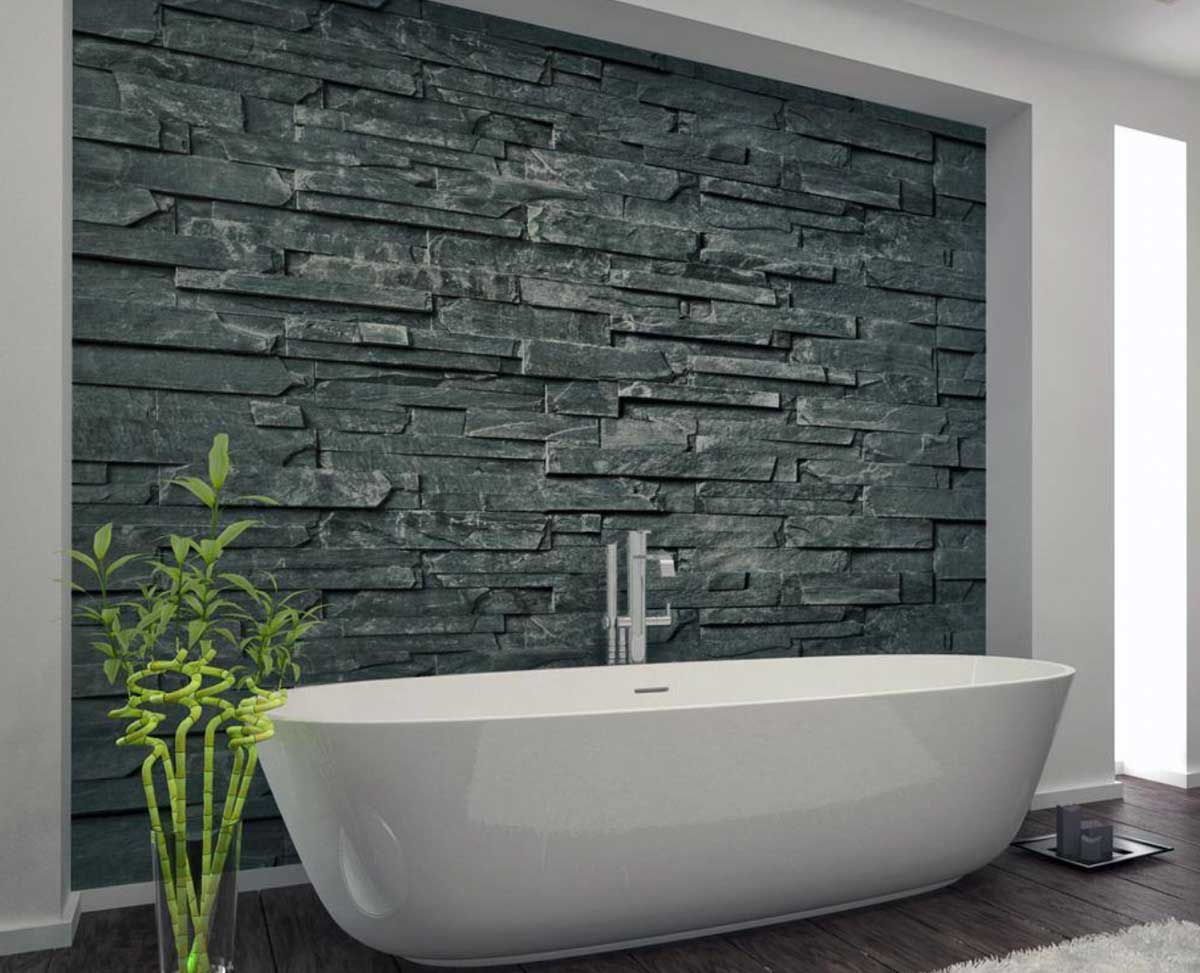
Made from one of the most versatile types of plastics, urethane or polyurethane panels have excellent resilience and wear resistance. These panels usually come with 1/8 to 4 inches in thickness and can be manufactured in any size or shape.
The urethane panel is the perfect surface material for achieving a groutless shower wall while simulating the look of other textures. Urethane panels can look like stone, wood, tile, and other various materials. The beautiful outer surface conducts and dissipates heat slowly, making it a comfortable surround.
Like most plastic panels, urethane panels are easy to install due to its continuous form and lightweight nature. An adhesive specified by the manufacturer is applied at the backing of the urethane panels and further sealed off with a silicone sealant.
Tile-look Panels
Get an enhanced look on your groutless shower wall with tile-look panels. These panels can look like various types of tiles. Natural stones such as marble or granite are desirable finishing materials but can add structural weight.
Heavy finishing materials will need stronger backing, which means thicker and heavier substrate and support is required. These additional dead loads may only be possible for some types of projects, especially when installed on the upper floors for a renovation or home upgrade.
Tile-look panels are lightweight, and the continuous surface means fewer joints. The lesser the joints, the less possible crevices for moisture or water to seep through.
A customized groutless shower wall is possible with tile-look panels. Finding a desired look can be challenging as not all designs are available in the market. A tile look will mimic a certain pattern even when opting for a tiled pattern without the needed grouting.
Tempered Glass
One of the hallmarks of modern aesthetics is the use of glass, and tempered glass is a popular option mainly due to its safety and durability features. While tempered glass is a high-impact glass that is unlikely to shatter with regular use, for safety measures, it will break into round pieces if ever broken.
Tempered glass is an excellent substitute for opaque wall panels as it allows light to pass through while achieving the look of groutless shower walls. This makes it a hygienic bathroom wall surface due to the increased natural light exposure and impervious material.
Stainless Steel Panels
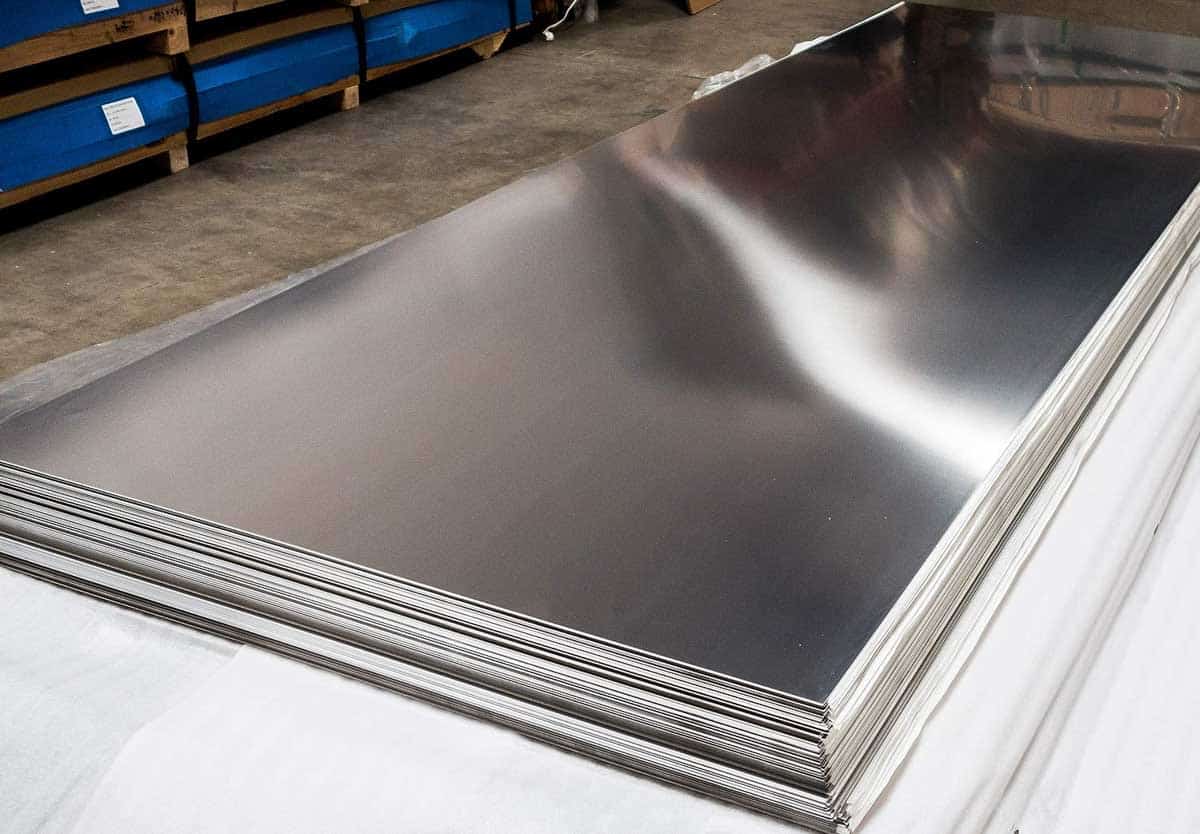
As a steel alloy, stainless steel composes a minimum amount of chromium which is essentially a component that makes a stainless-steel panel noncorrosive. So even when exposed to constant moisture, these groutless shower panels do not rust over time. In addition, a layer of chromium or also called passive film that, further protects the panels.
Stainless steel also has a nonporous and smooth surface that prevents the growth of bacteria, mold, and mildew, promoting a hygienic environment. This also means it is easier to clean compared to most shower panels.
Stainless steel panels can also come with a variety of finishes, such as polished, brushed, and satin. There are also various colors than the typical silver and, further, come with various pattern options.
Two major disadvantages of stainless-steel panels are that they require professional installation and it is more expensive compared to other types of shower wall panels.
Stainless steel panels with a basic type cost around $80 to $150 or more per square foot, while the basic acrylic panel or entry-level type of acrylic panel costs $15 to $30. Thicker acrylic panels that range from ¼ inch to ½ inch thick range from $40 to $80 per square foot.
Corrugated Metal
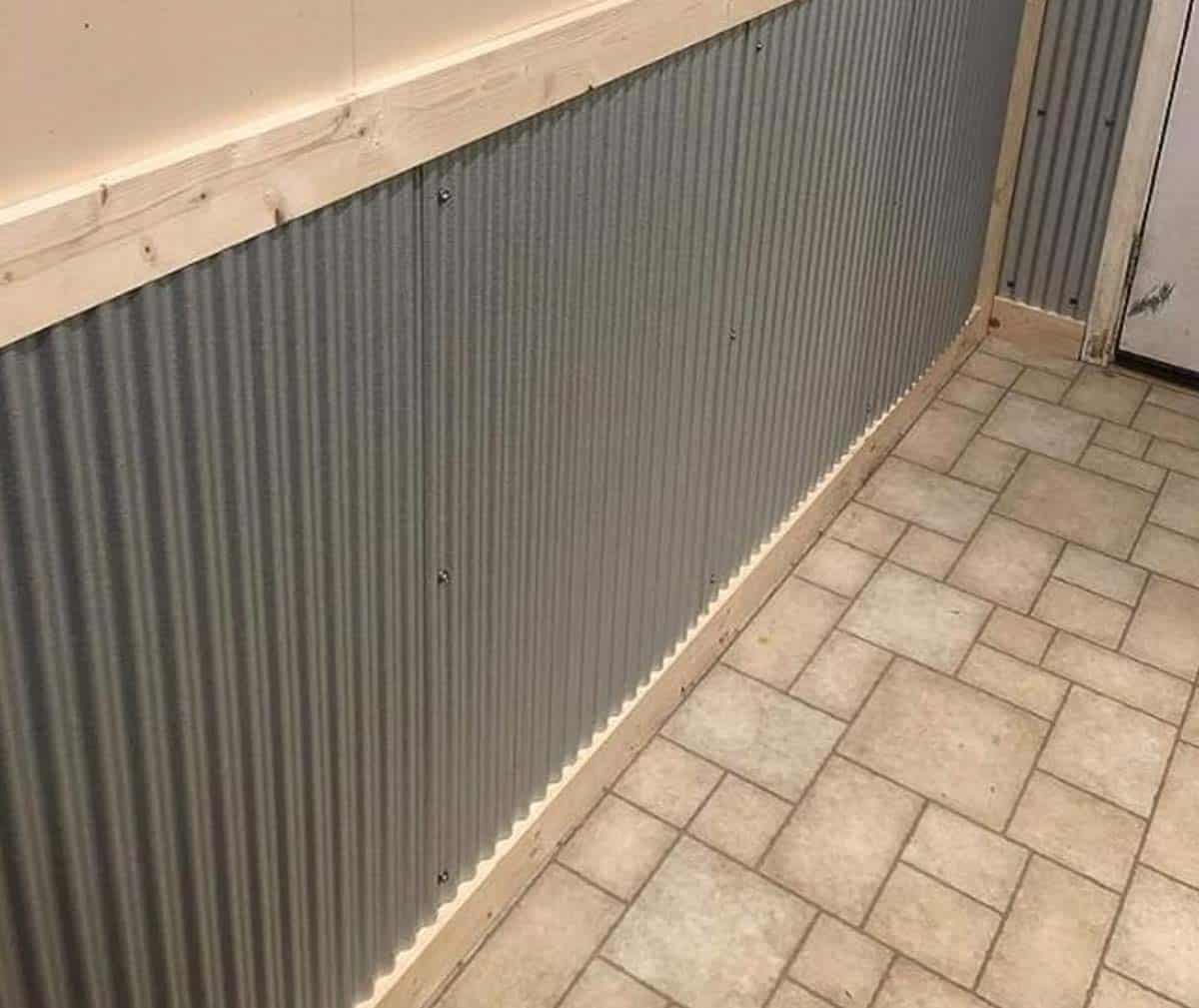
For that modern industrial look or a rustic farmhouse bathroom, a corrugated metal shower surround can be a practical solution that’s inexpensive and easy to install. Corrugated metal is inherently durable and resistant to water, making it suitable for a shower environment.
It is less prone to water damage and corrosion compared to traditional wall materials. To further prevent rusting, iron oxide can be applied on the corrugated metal surface. Corrugated metal shower walls are probably the cheapest groutless ones, costing around $1 to $3 per linear foot. High-quality corrugated metal can cost from $3 to $10.
Groutless Wall Tiles
Without the need for grout, the perfectly cut groutless wall tiles can create an almost seamless and smooth surface. However, tile installation without grout is recommended to have .0025 inches in variation or less.
The wider the space, the smaller grout is needed to prevent displacement of tiles. A type of groutless style is the rectified tile, which was precisely manufactured to fit each tile on the edges. Groutless wall tiles come in many types of traditional tiling materials where the wall tiles can look like marble, granite, bricks, or travertine.
Groutless wall tiles are also termed “tile-look panels or large-format tiles. With no grout lines to clean or maintain, groutless tiles are easier to clean and require less upkeep than traditional tiles.
Best Groutless Shower Walls
While the shower wall you choose relies heavily on your specific requirements, there are a number of groutless shower panels that delivers quality and cost-effective solutions. The following are the best groutless shower walls based on several factors such as:
A Surface that’s Easy to Maintain: Since there are no crevices or grout lines for dirt to accumulate, the groutless shower walls are easy to maintain. Furthermore, the best groutless shower walls should have an impervious and smooth surface that’s easy to wipe off with ordinary cloth and soap.
Texture is another attribute that can be used to detect the presence of mold growth. By shining a strong flashlight beam on the surface at various angles, there is a better chance of detecting mold visually through its color and texture characteristics. – Recognition, Evaluation, and Control of Indoor Mold, Bradley Prezant, Donald M. Weekes, J. David Miller
Does not Encourage Mold Growth: Inorganic or engineered shower walls that are nonporous prevent the growth of mold and bacteria that causes health problems.
It reduced Water Penetration: Aside from a waterproof backing, it is an advantage to have a nonporous wall surface material. Wall panels such as PVC, solid surface materials, acrylic, and other wall panels have a tight molecular structure that prevents water from seeping through.
Resistant to Staining: In connection to impervious surfaces, a cost-effective wall panel should be stain resistant. It creates an environment where soap, shampoo, makeup, and other chemical agents from various bathroom essentials can leave color on a surface wall.
Longevity: Aside from constant exposure to water and other bathroom products, a wall panel can be subjected to constant wear and tear. A bathroom surface should be durable enough to withstand an average service life expectancy of the home, according to the National Association of Home Builders.
Temperature Tolerance: Wood, stone, and other types of wall surfaces behave differently when exposed to extreme or varying temperatures, like during a hot shower. Wood, for instance, can expand when damp and contract during dry temperatures.
For natural stones such as marble, the crystal structure can expand and then contract when heated and then cooled. This can cause wall tiles or panels to cause hairlines and weaken the structural integrity of a wall surface. Groutless shower walls should withstand temperature changes without warping or deteriorating.
Design Flexibility: Not all bathroom projects require a modern aesthetic. Therefore, a groutless shower wall panel should be versatile enough to cater to various types of styles and other shower wall requirements. Another advantage of groutless shower walls is that unusual shapes, such as round or irregular shower enclosures, can be walled with customized groutless shower walls.
Resistance to Chemicals: Shower walls can be exposed to various cleaning products and chemicals. Bathrooms and shower areas are exposed to a variety of cleaning products, including detergents, disinfectants, and bathroom cleaners.
These products often contain chemicals that can be corrosive or damaging to certain materials over time. A chemically resistant shower wall can withstand regular exposure to cleaning agents without deteriorating, discoloring, or degrading. The chosen material should be resistant to common bathroom cleaners and chemicals to avoid damage or discoloration.
Faster Installation Time: Whether going for a DIY project or opting for a professional installation, the faster time spent on installation and logistics, the less expense on labor. Groutless shower walls, with their large format tile design, it’s easier and faster to install compared to traditional tile installations.
Seamless Aesthetics: As a personal oasis, the single flowing surface of a wall surround is a desirable aesthetic, and groutless shower walls effortlessly deliver this modern look. Overall, a seamless surface in a bathroom offers a combination of practical benefits, ease of maintenance, and aesthetic appeal.
When considering materials for your bathroom renovation or design, think about how a seamless surface can enhance the functionality and visual appeal of the space while simplifying your cleaning and maintenance routine.
The following list of the best grout-less shower walls is considered popular in the market and has satisfied most of the desirable factors listed above:
• Acrylic Shower Wall Panels: A cost-effective shower wall finishing, acrylic shower wall panels can last from 10 to 20 years on average. It is readily available from most reputable online suppliers to big box stores offering a range of designs to choose from.
They are textured to plain surfaces and have a plethora of colors and patterns. Acrylic shower surfaces are very durable and lightweight, and they can be installed without or with fewer grout lines since they can come in a large format tile shower or in panels.
• PVC (Vinyl) Shower Wall Panels: PVC panels are waterproof and moisture-resistant, making them suitable for wet areas like showers. They are easy to clean, available in various styles, and can be installed without grout lines.
One of the greatest advantages of PVC shower panels, aside from affordability, is that it is easily installed as a DIY project. However, proper installation is important to ensure the panels are securely attached, and joints are sealed correctly. Also, make sure the substrate used is properly leveled to ensure a seamless installation.
• Solid Surface Panels: Solid surface panels, often made from a blend of acrylic and natural minerals, offer a seamless and durable solution for groutless shower walls. They can simulate the look of organic surfaces such as stone and other materials. Custom-designed options are also available for more personalized shower wall solutions.
• Fiberglass Reinforced Panels: FRP panels are durable and resistant to moisture, making them suitable for shower walls. They are lightweight, cost-effective, and can be installed without the need for grout. There are FRP panels with resistance to stains and dirt.
• Porcelain Slabs: Porcelain slabs are a premium option for groutless shower walls. They offer a luxurious look and high durability. Porcelain slabs can be large-format and provide a seamless appearance when installed correctly. However, they can weigh heavier than your typical engineered shower wall panels.
• Glass Panels: Glass panels such as tempered glass panels not only can create a sleek and modern look for groutless shower walls but can complete a glass shower enclosure. The consistent use of glass around a shower interior means easier upkeep and allows natural light to reflect and pass through the material. There are also glass panels that come in a textured format creating a more customized and visually stimulating shower surround.
See more related content in our article about stacked stone shower walls on this page.

